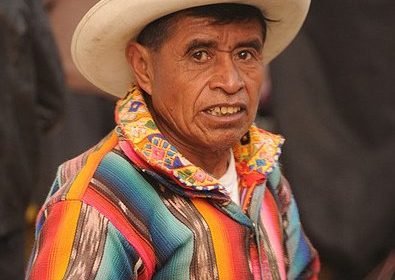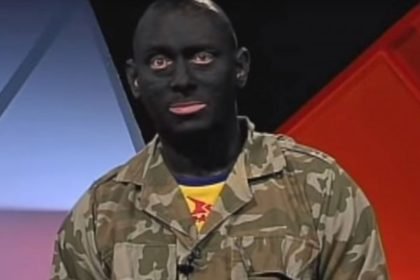 Have you ever seen a Black Latino on TV? If you have, then you probably remember it vividly because that is quite the rare event. Black Latinos in Spanish are called “Negros” [Nae-gros]– which is the literal English translation for “Blacks”. It’s not uncommon to hear the reference to Negros in Spanish, which sometimes, may even be a term of endearment.
Have you ever seen a Black Latino on TV? If you have, then you probably remember it vividly because that is quite the rare event. Black Latinos in Spanish are called “Negros” [Nae-gros]– which is the literal English translation for “Blacks”. It’s not uncommon to hear the reference to Negros in Spanish, which sometimes, may even be a term of endearment.
The Blacks, aka “Los Negros”, have a deep history in the Hispanic culture. Most are direct decedents of slaves brought to the Caribbean from Africa by their European owners, and eventually redistributed to North and South America.
Ever since the arrival of Los Negros and their forceful enslavement, not much has changed. Sure… so-called “freedom” was granted by their oppressors, and nowadays these Negros are allowed to work and live among the population – and some are even allowed to date outside their race, eat at public restaurants and vote – which is a huge improvement from their forced labor and subhuman conditions – but, still, nothing has practically changed since their emancipation.
Although they have yet to reach any level of equality in many areas of society, African-Americans in the United States have come a long way from their original oppression. But take that one step lower in the pole of injustice and you will find Afro-Latinos currently living even worse than their Afro-American brothers and sisters. Part of the reason is that there is still a real ignorance when it comes to the blunt racism taking place in Latin America. Most people don’t know (or care) that racism in the Latino community exists, and it’s thriving!
Most Latinos in America don’t see themselves as racist. They actually think they’re an equal opportunity community… but boy are they wrong! There are essentially no Black-Latinos in any sort of power in America. There may be a handful of dark-skinned leaders, but in general, power is exclusive to “light-skinned Latinos”.
I use Television as a prime example of this racial prejudice because TV is supposed to be a representative of culture for society. If you watch Spanish-language Television you will notice a lack of dark-skinned Latinos. Accident? Coincidence? Maybe. Racism? Definitively!
Even in Latin American countries where the majority of the population is composed of dark-skinned or “indigenous-looking” people, Television is mainly a light-skinned realm. I’ve worked in the TV industry for many years as a producer, and I’ve been directly instructed to cast only “lighter-skinned” talent – even though I’m considered a dark-skinned Latino myself.
Racial equality in America is far from a truth, but racial equality in Latin America is a far fetch fairy tale. The biggest problem is that no one thinks it’s a problem at all! Even darker-skinned Latinos don’t realize how much discrimination they go through, mainly because that’s the way it has always been. It’s the norm. It is normal for darker-skinned Latinos to see their lighter-skinned brothers and sisters get more opportunities than them. Darker-skinned Latinos don’t see anything wrong with that. In a way, they’ve been conditioned to think that’s just the way things are supposed to be.
I’m not a conformist. I can’t stand idle while people get discriminated because of the color of their skin – regardless of what language or culture they come from. Indigenous-looking Latinos, or as they are condescendingly called, “Indios” (Indians), are also hugely discriminated against. They’re the people that don’t belong to your TV sets. They’re meant only to work cleaning houses or in the agricultural fields, picking fruit and vegetables.
skin – regardless of what language or culture they come from. Indigenous-looking Latinos, or as they are condescendingly called, “Indios” (Indians), are also hugely discriminated against. They’re the people that don’t belong to your TV sets. They’re meant only to work cleaning houses or in the agricultural fields, picking fruit and vegetables.
 The portrayal in Spanish-language TV programming of dark-skin and indigenous Latinos as the maids and servants is outright the reason why those same Latinos grow up believing that’s their place in society. It’s really a sad deal all around because there’s an endless cycle of humiliating discrimination that has never been addressed since the times when the slaves were enslaved.
The portrayal in Spanish-language TV programming of dark-skin and indigenous Latinos as the maids and servants is outright the reason why those same Latinos grow up believing that’s their place in society. It’s really a sad deal all around because there’s an endless cycle of humiliating discrimination that has never been addressed since the times when the slaves were enslaved.
Some countries in Latin American have never even officially ended slavery. Of course, slaves revolted and demanded their freedom, but it was never granted officially.
I don’t propose any solutions within these writings, yet. This is a complex problem and it requires careful planning of any proposition to make things right. But my intent with these words is to hopefully bring awareness to the problem.
In conclusion, Latinos are racist. Extremely racist! But they don’t realize it. However… knowledge is power. Things have to change.

